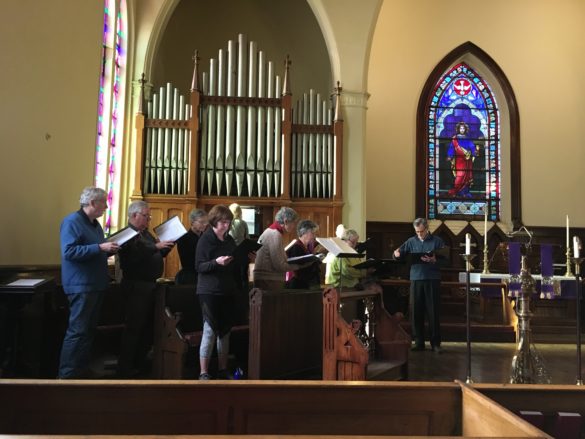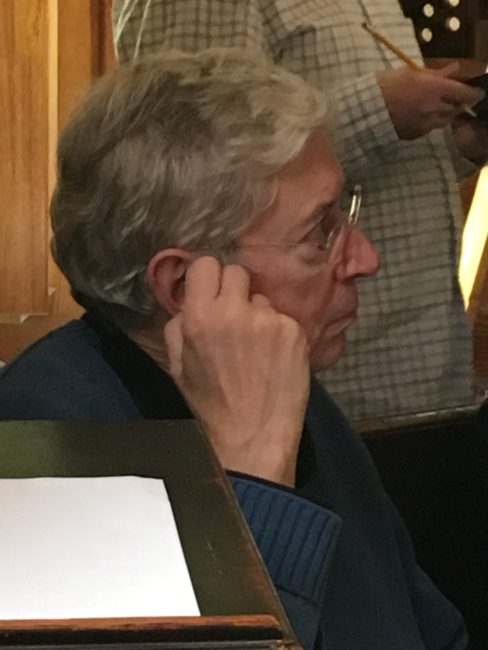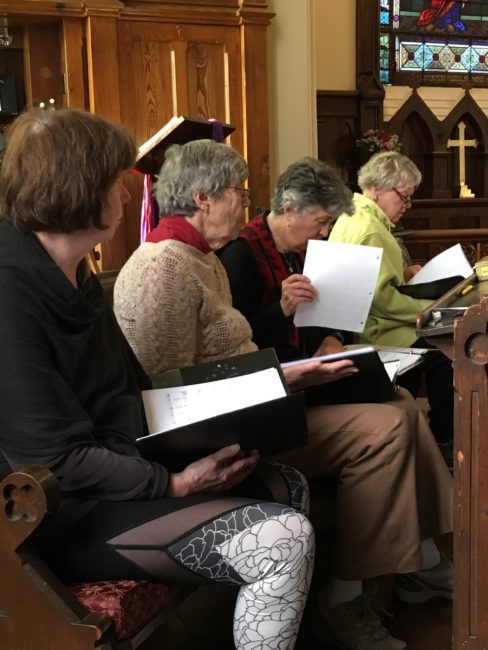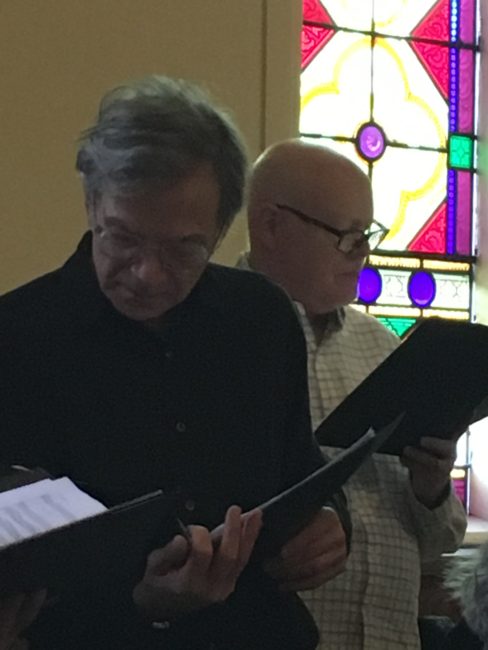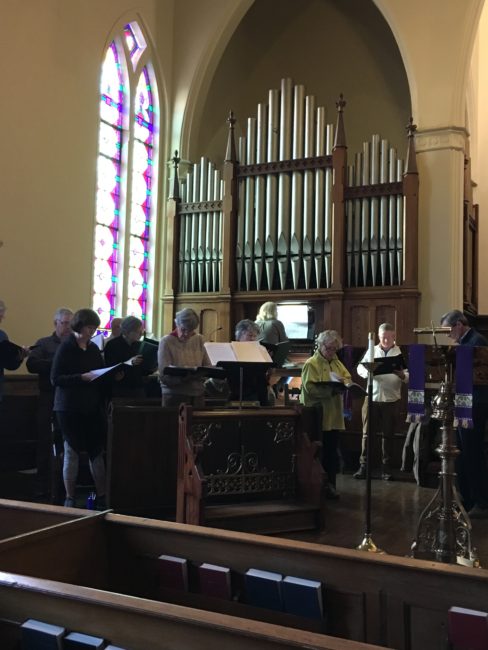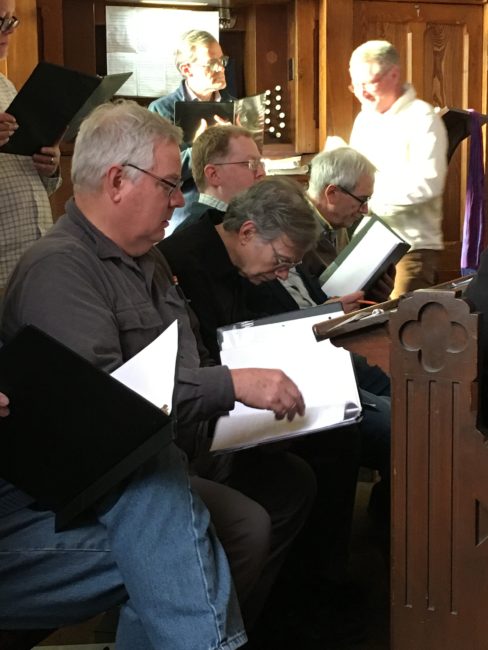I’ve been thinking a lot recently about history. Not just because we’re living through extraordinary times in world history and our nation’s history, which we are, but also because we’re doing some of our own work of creating history right now.
Our Annual Meeting is coming up in a few weeks and I’ve been working on planning for annual reports, which are a kind of writing history, a way of telling the story of who we were and what our church did in 2020.
But at the same time I’ve been digging around in older history. We’re getting ready to do some construction in the church office and we had to clear out a big closet that’s full of archival materials, of letters and correspondence and records from the 1870s and 1880s and beyond. My favorite ones are the letters from Rev. Cutler (of course), planning for the 100th anniversary of the church in 1940, and inviting people to submit a memory, or make a donation, or come and celebrate with St. John’s. My absolute favorite letters are the ones saying “no” because people found some extraordinarily polite ways to say, “No, I can’t help you.”
It strikes me, though, that none of them thought they were writing history. The notion that one of their pieces of stationery with a careful note would become a part of the historical record, the idea that I, eighty years later, would be reading what they’d written, would seem bizarre.
But that’s what we’re all doing, all the time. Every action we take every day, everything that we say to another person, everything that we do, is creating part of our world history and of our own personal histories. There may be a casual compliment that you give, or a harsh word you wish you hadn’t spoken, that’s remembered years down the road; that shapes somebody, that transforms the path that they’re walking through life. And all of that is history.
So as we ponder how to remember 2020, remember also that the way we talk about our pasts shapes our futures; the way we think about our past shapes the way we live our lives in the present, and the way we will live our lives for years to come. So when you think about 2020—when you think about 2021!—I pray that you do it in the spirit of love and hope that God has given us by the Holy Spirit, who gives us faith for a brighter world to come.

